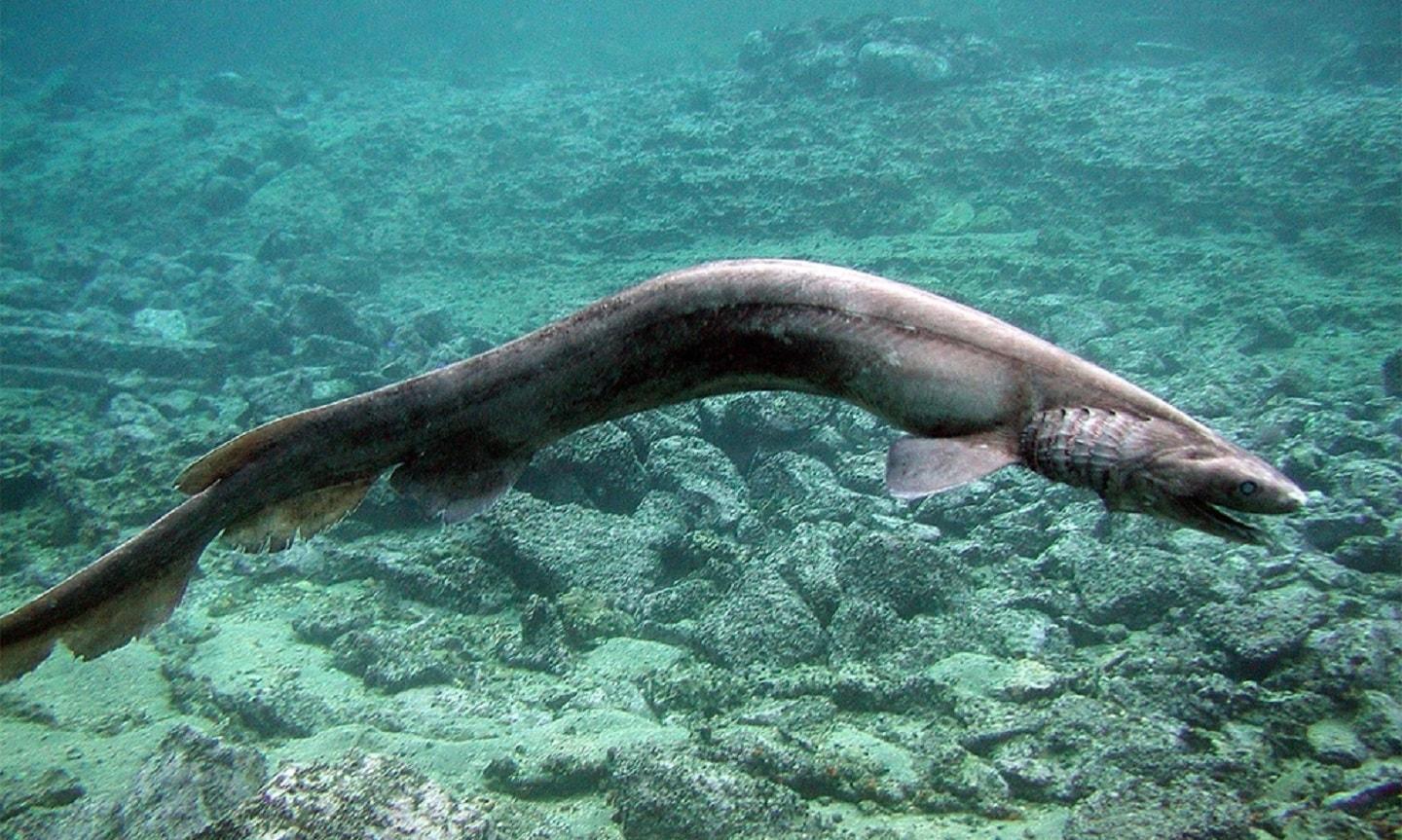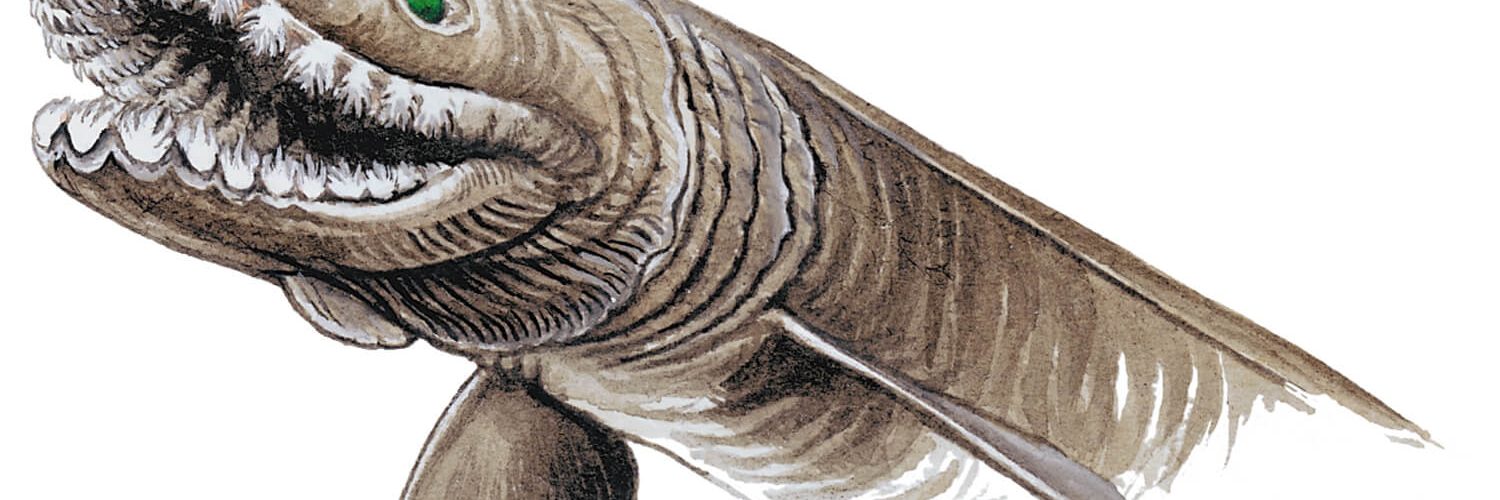Freaked out? Don't be. This rarely sighted 80 million-year-old species is located well below sea level. Source: Shark Research Institure
A five-foot-long “fossil shark” was caught by a fishing vessel in Portuguese waters on Friday, officials saying that the shark was scooped up from 2000 metres below surface level.
Officially known as a frilled shark, the incredibly rare specimen is monikered a “fossil” because of how little it has changed over the past 80 million years.
So yes, they were around when dinosaurs roamed the Earth.
Notable features include enunciated jaws (used for catching squid, fish, and even other small sharks), 300 teeth and some distinct markings.
The Portuguese Institute of the Sea and Atmosphere described the shark as having a “slender body” and “a head resembling a snake”.

“The shark’s 300 teeth allow it to trap squid, fish and other sharks in sudden bursts,” said University of the Algarve’s Professor Margarida Castro.
Little is known about the frilled shark, although there has been species found off the coasts of Australia and Japan.
The shark has widely spaced teeth and a head shape described as giving it a “scary” look.
The International Union for Conservation of Nature lists the shark as a member of species classified as “least concern”, although there is a caution that commercial fishing in deep waters could impact the shark’s unknown population.
The shark can be found at extreme depths, where they can prey on other sea life in near-complete darkness, freezing temperatures and extreme water pressure.





